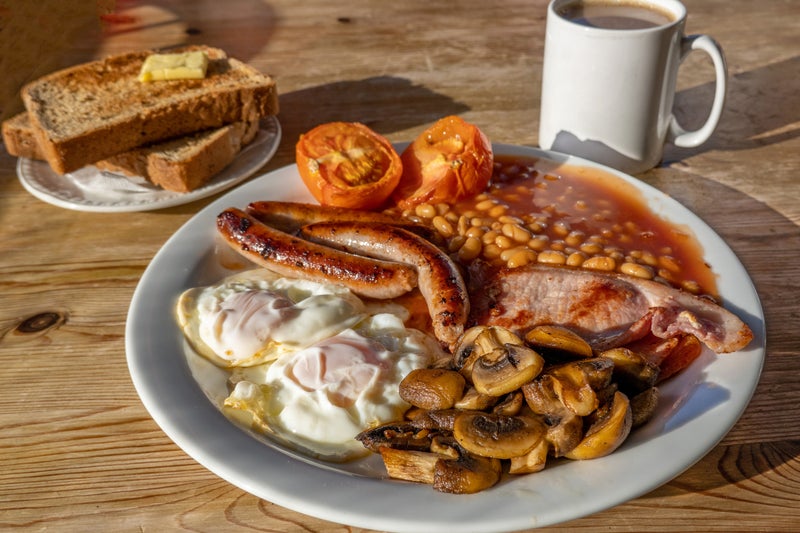Britons are being urged to make a series of lifestyle changes to help reach climate targets such as reducing meat and dairy consumption, buying an electric car and getting a heat pump. Britons have been urged to give up the equivalent of two fry-ups a week to keep the UK within safe climate limits by 2040, the country’s climate advisers have said.
![[The required reduction in meat is the equivalent of cutting down on two fry ups or donor kebabs a week]](https://static.independent.co.uk/s3fs-public/thumbnails/image/2017/12/01/16/doner-kebab-0.jpg)
In its latest advice for how to end the UK’s contribution to global warming, the Climate Change Committee (CCC) is urging the government to commit to an 87 per cent cut in greenhouse gas emissions by 2040. It has set out what it says is a deliverable and cost-effective route to the greenhouse gas emissions cuts required from 2038 to 2042 to ensure the UK meets the legally binding goal to cut climate pollution to zero overall – known as net zero – by 2050.
To cut emissions from meat and dairy production – and free up land for tree planting to absorb carbon – people would have to eat 25 per cent less meat by 2040 compared with 2019 levels and reduce dairy consumption by 20 per cent. According to the Climate Change Committee’s Dr Emily Nurse, people need to alter their behaviour and eat 260g less meat each week -the equivalent of ditching two fry ups or doner kebabs a week.
Dr Nurse said: “We are absolutely not saying everyone needs to be vegan. But we do expect to see a shift in dietary habits.”. The reduction in eating meat and dairy, along with incentives for farmers and land managers to diversify incomes, will lead to the number of sheep and cattle falling by 27 per cent by 2040 on 2023 levels, under the recommendations.
That will free up land to plant woodlands and restore peatland to capture carbon emissions from sectors such as agriculture. However, farmers have criticised the suggestion that a reduction in meat-eating should lead to a cut in livestock numbers, arguing the UK’s environmentally friendly meat production should displace produce from other parts of the world where it has more climate impact.
Around a third of the emissions cuts in the period will have to come from action by households, which would involve more eco-conscious purchases such as buying an electric car and getting a heat pump to replace a gas boiler. Other changes to lifestyle such as eating less meat and dairy, and cutting down on flying, would play a “smaller, but important role”, the committee said.
The CCC said its modelling shows that, by mid-century, households would save around £700 a year on heating bills and another £700 on motoring costs by switching to heat pumps for home heating and getting an electric or hybrid car. It pointed to findings from a citizens’ panel it convened which found people “in principle” support the move towards cleaner heating and insulation but have concerns about a range of issues including upfront costs, hassle, noise, reliability and how it would work for renters.
There are a range of other recommendations across the economy, including increasing rates of tree planting and peatland restoration, reducing livestock numbers, making sure the aviation industry takes responsibility for its emissions, more renewables, and helping industry cut carbon pollution.































